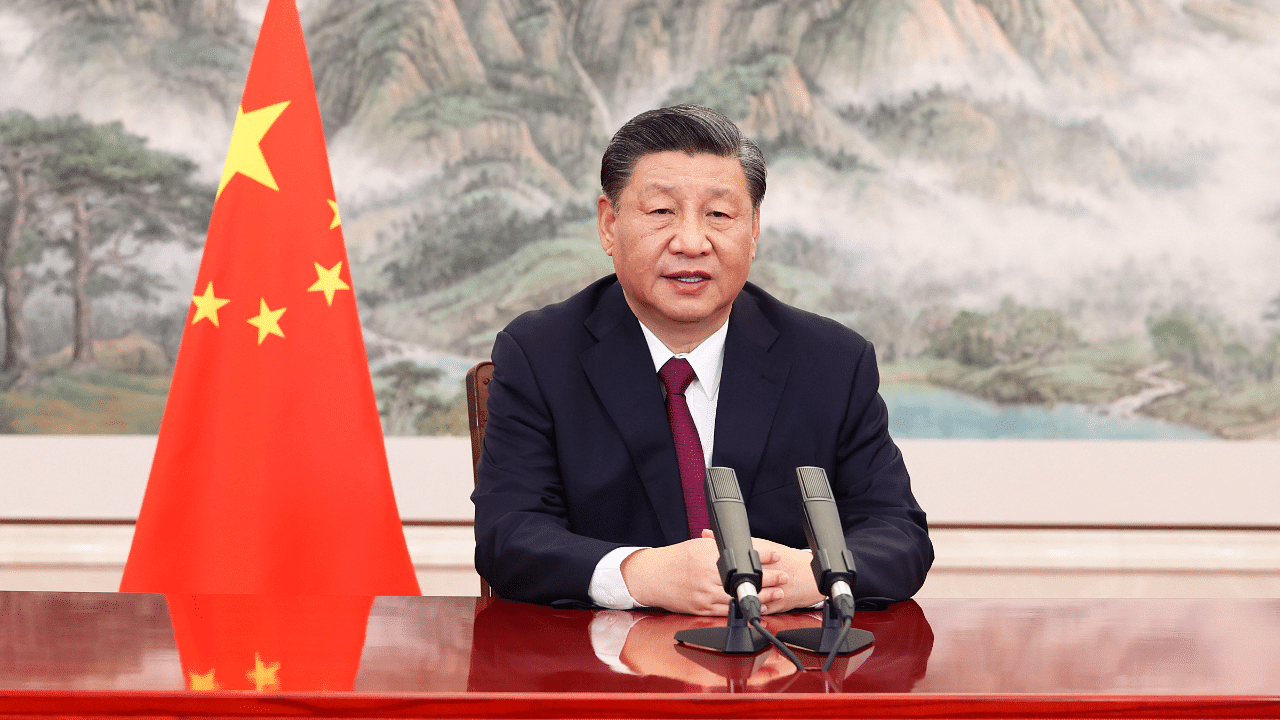
There is hardly anything common between Cambodia, Djibouti, Equatorial Guinea, the United Arab Emirates (UAE) and the Solomon Islands. However, they all need to be considered together if one is to think about China's growing global military presence. China has already established a military base in Djibouti since 2017 and was interested in establishing bases in the UAE and Equatorial Guinea.
This week, China signed a security pact with the Solomon Islands. The Solomon Islands is an archipelagic country located in the South Pacific with a population of less than a million. China is already the most important economic partner for the tiny country, and the pact signals the deepening security partnership between China and the Solomon Islands.
The pact has become controversial in the domestic politics of the Solomon Islands. The draft of the agreement was leaked before it was signed. According to the pact, the Solomon Islands may "request China to send police, armed police, military personnel and other law enforcement and armed forces" to "assist in maintaining social order, protecting people's lives, and property, providing humanitarian assistance."
The pact also provides for logistical replenishment for Chinese ships in the Solomon Islands. It will significantly increase the reach and ability of China's People's Liberation Army Navy (PLAN) to operate in and monitor the South Pacific. China can also send "relevant forces" to "protect the safety of Chinese personnel and major projects". It means that China can intervene in the domestic affairs of the Solomon Islands on the pretext of protecting Chinese citizens and investments.
The geopolitics of the South Pacific
The signing of the pact and the willingness of the archipelagic state to engage with China signals the shifts in the geopolitics of the South Pacific. The US dominates the entire Pacific Ocean and maintains forward operating bases in the Western Pacific. Australia considers the region as its backyard, whereas France is an important player owing to its territorial possessions. The entry of China, initially as a significant economic player and now as a military partner, has upset the tranquil geopolitical waters of the South Pacific.
As a result, the balance of power in the region is changing. As part of its Indo-Pacific strategy, the US is refocusing attention on the region. US Secretary of State Antony Blinken met the leaders of the Pacific Island states in February. Moreover, it had decided to re-establish the embassy in the Solomon Islands that was closed in 1993. Therefore, unsurprisingly, the news of China's pact with the Solomon Islands saw senior US officials visiting the South Pacific country, perhaps to convey US concerns and dissuade the island nation from signing. (In fact, the US officials had paid visits to Equatorial Guinea as well when the news of a likely Chinese base emerged.)
Australian Response
On March 25, Australian foreign minister Marise Payne and Zed Seselja, the country's minister for international development and the Pacific, stated, "We respect the right of every Pacific country to make sovereign decisions. We have regularly and respectfully raised our concerns with the Solomon Islands Government and will continue to do so. We would be particularly concerned by any actions that undermine the stability and security of our region, including the establishment of a permanent presence such as a military base."
Australia has a long history of involvement with the Solomon Islands. As recently as November 2021, Australia had sent federal police to quell violent protests. The protests targeted Chinatown in Honiara, the capital of the Solomon Islands. The rivalry between China and Taiwan for diplomatic recognition was considered one of the primary reasons behind these protests. The Solomon Islands had switched recognition from Taiwan to China in September 2019 amidst the considerable domestic opposition. Therefore, the relations with China have emerged as a critical dividing factor in the domestic politics and foreign policy of the Solomon Islands.
With the elections in Australia due in May 2022, the issue of the Solomon Islands is likely to feature prominently in the election campaign. Since 2020, Australia has been pushing back against the growing Chinese influence, and the foreign and defence policies are being recast. Australia has entered into a long-term defence partnership with the United Kingdom (UK) and the US, known as AUKUS, to counter China. The developments concerning the Solomon Islands would underscore the need for Australia to pay even more attention to the region.
In a way, the dilemma for all regional powers in the face of the rising Chinese challenge is similar. They need to preserve their strategic supremacy in their backyard while competing with a formidable external player willing to fulfil smaller countries' (sometimes unreasonable) aspirations. India faces this dilemma in the Indian Ocean region. The signing of the security pact signals the sharpening of strategic rivalries in the South Pacific. There will be a response from the established powers (US, Australia, and France), and it will be interesting to see the unfolding dynamics in the region.
The South Pacific has to be seen as an important strategic theatre in its own right and an important sub-region of the broader Indo-Pacific region. Therefore, whatever happens in seemingly far-off theatres from each other, like South Pacific, East Africa, and South Asia, does not remain confined to that particular theatre. It has strategic implications for the broader region. Consequently, the deepening relationship between the Solomon Islands and China is a wake-up call for the Indo-Pacific powers.
(Sankalp Gurjar is a strategic analyst based in Delhi and specialises in Indo-Pacific security.)
Watch the latest DH Videos here: